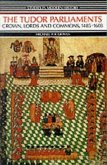Until the implementation of new legislation on March 26, 2015, men were given preference to women in the British royal line. This system of male primogeniture meant that women seldom inherited the throne, and even when they did, they were often dominated by male councillors. Those women who married British kings gained the title of Queen, but they were queen consorts, holding the title with no power. This meant only a select few women ruled in their own right. >Elizabeth I changed the rules of the game and indeed she herself was changed by the game. She was a female monarch of England, a kingdom that had unceremoniously broken with the Catholic Church, and the Vatican and the rest of Christendom was baying for her blood. She had had commercial and militaristic enemies galore. In the end, she helped change the entire structure of female leadership. Elizabeth often has been featured in biographies that were more like hagiographies, glossing over her fits of temper, impatience and other frailties. It is fair to say, however, that she had also inherited her grandfather's political acumen and her father's magnificence, thus creating not just one of the most colourful courts in Europe but also one of the most effective governments in English history. It was an age of Christopher Marlowe's and William Shakespeare's flourishing creativity that still enhances English as well as comparative literature. Elizabeth was also patroness of Sir Francis Drake, the pirate, thereby promoting English settlement of foreign colonies. The Jamestown Settlement in Virginia would come in 1607, four years after Elizabeth's passing, and the Plymouth colony in Massachusetts would come in 1620. Elizabeth II's relation to preceding monarchs made it highly unlikely that she would ever even inherit the throne. It was only the abdication of her uncle, in circumstances that shocked the world, that put the young Princess Elizabeth's father on the throne and made her the heir. In less tumultuous times, hers would not have been the head that wore the crown. >In too many ways to count, hers was an extraordinary reign, but even as she was able to portray herself as a figure of tradition, she was a modern queen in many respects, so even as she reached old age and her subjects were forced to consider what life will be like without her, she set the Royal Family on a path to modernity.
Hinweis: Dieser Artikel kann nur an eine deutsche Lieferadresse ausgeliefert werden.
Hinweis: Dieser Artikel kann nur an eine deutsche Lieferadresse ausgeliefert werden.








